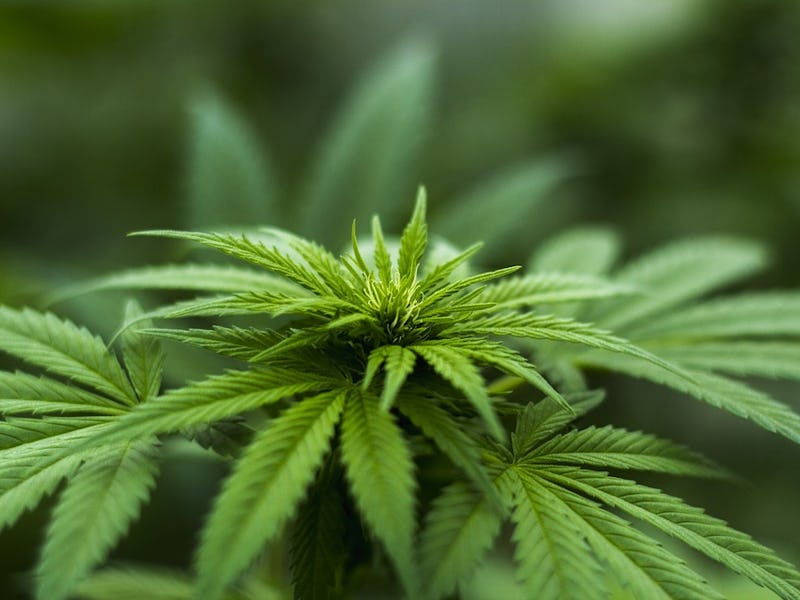Hemp Can Fight Cancer, Too, Reveal Scientists in New Cannabis Study
Not all marijuana-derived drugs need to get you high.

With one and a half million new cases diagnosed each year, scientists are on a continuous hunt for more effective means to fight cancer. The urgency of the search has led them to explore more unorthodox substances, like marijuana and viagra, as potential treatments for the disease. Their endeavors have paid off: As researchers reported Monday, it turns out that hemp — a variety of the Cannabis sativa plant — might also be effective in treating certain types of cancer.
While the hemp plant has been used medicinally for centuries, modern scientists had to stop exploring its positive properties after the Controlled Substances Act went into effect in 1970. This policy categorized all forms of cannabis as Schedule 1 drugs even though hemp doesn’t have psychoactive properties or cause addiction. Those laws are slightly more relaxed now, and scientists have found that what hemp likely can do is become a plant-based treatment for ovarian cancer. In a new abstract presented at the 2018 Experimental Biology meeting, researchers from Sullivan University showed that hemp has anti-cancer properties that can slow down the spread of the disease.
“Our findings from this research, as well as prior research, show that KY-hemp slows ovarian cancer comparable to or even better than the current ovarian cancer drug Cisplatin,” co-author and Sullivan University College of Pharmacy graduate student Chase Turner explained in a statement released Monday. “Since Cisplatin exhibits high toxicity, we anticipate that hemp would carry less side effects.”
Dried hemp seeds: Scientists say hemp likely has anti-cancer properites.
KY-hemp is an extract of a strain of hemp grown in Kentucky. It was chosen because, like marijuana, hemp contains the active ingredients cannabidiol (CBD) and very small amounts of the psychoactive compound tetrahydrocannabinol (THC).
Previous studies have shown these components are therapeutically valuable. According to the American Cancer Society, CBD can treat seizures and reduce anxiety, while THC can relieve pain and nausea — side effects of the disease that cancer patients need to manage. In line with this research, the new study shows that hemp is useful in mitigating some of the effects of ovarian caner.
In this new study, scientists tested hemp’s interaction with cancer in two parts. In the first experiment, they added various doses of the KY-hemp extract to cultured ovarian cells. Doing so resulted in a significant slowing of cell migration, suggesting to the researchers that the hemp extract could help slow down the spread of cancer to other parts of the body via a process called metastasis.
An intermediate magnification micrograph of a ovarian tumor.
The second experiment was designed to test KY-hemp’s protective effects, specifically against ovarian cancer. Here they determined that when introduced into cultured ovarian cancer cells, KY-hemp slowed the secretion of a compound called interleukin IL-1 beta. Interleukins are cellular messenger molecules that, when working correctly, can regulate the immune response. But they can also overstimulate inflammation, a process that has been linked previously to cancer progression.
The KY-hemp slowed down the secretion of IL-1 beta, leading the scientists to hypothesize there’s a biological mechanism within the extraction that has anti-cancer effects. In future experiments, they plan on testing the extract on mice with ovarian cancer and on other culture cancer cells in order to “learn more about how it leads to cancer cell death.”
Hemp contains only 0.3 percent or less of THC compared to the five to 20 percent range found within marijuana plants, so it’s an attractive alternative for scientists looking for a cure that doesn’t have addictive and psychoactive properties. As one of the first on hemp’s cancer-fighting properties, the current study research adds to the list of uses for industrial hemp — which its advocates say bolsters the need to make hemp universally legal.
That process is underway but not complete yet: In 2014, former President Barack Obama included a provision in the Farm Bill that allowed universities and state departments to grow industrial hemp for agricultural and research purposes. Today, there’s a bipartisan effort to kick hemp off the controlled substances list entirely and legalize it as an agricultural commodity. That’s good news for farmers, and for cancer researchers, too.
Interested in marijuana research? Check out this video next: